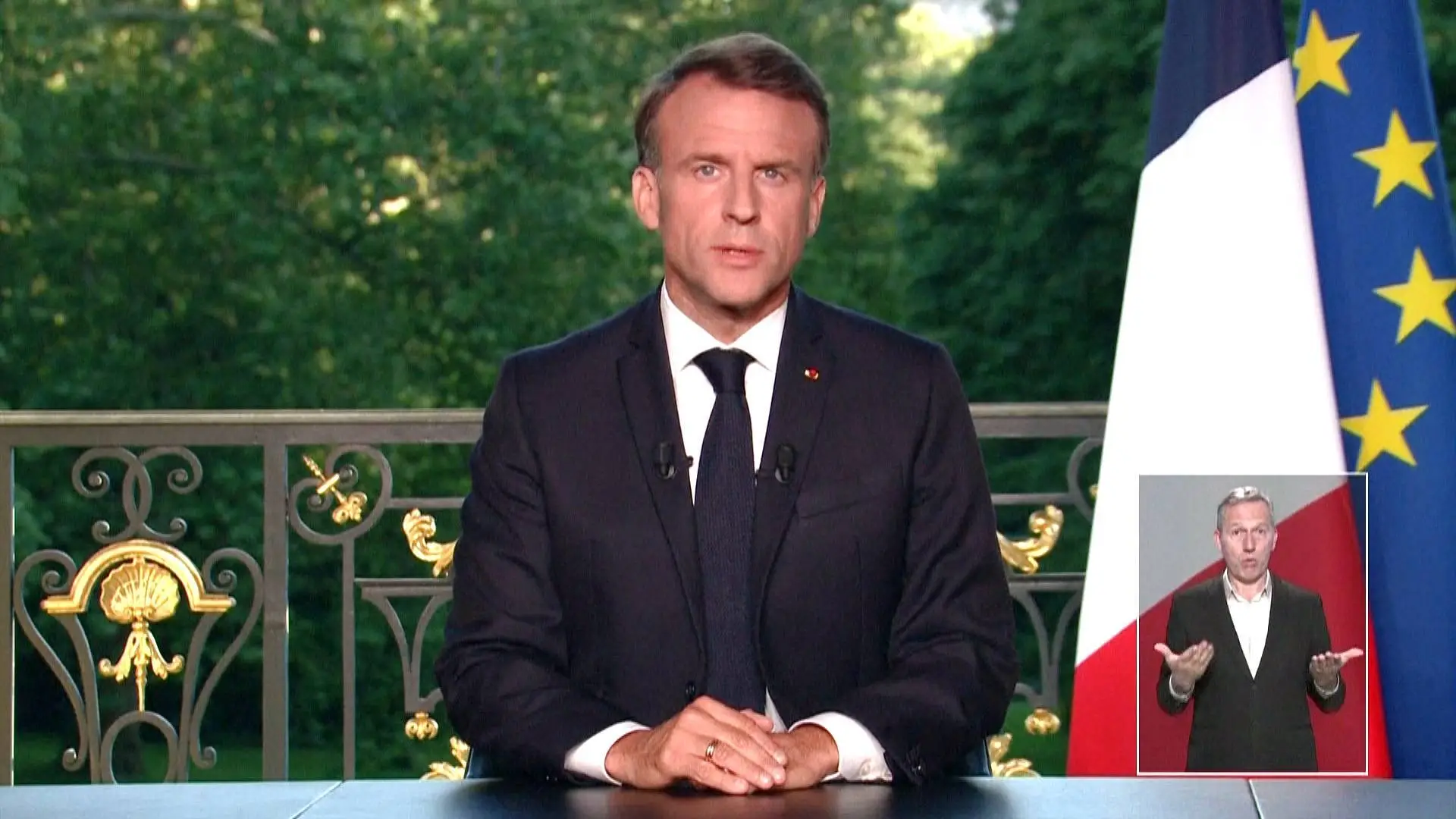The results of last week’s election for the European parliament sent shock waves through some of the major capitals of the continent. Even if the overall political configuration hasn’t been transformed at a European level, from the viewpoint of Berlin, and especially Paris, the results could herald a sea change in the attitudes and behaviors of their voters, and are, at the very least, a serious embarrassment for the governing coalitions in the two capitals.
In Germany, the Social Democratic Party of Chancellor Olaf Scholz suffered its worst defeat since the 1940s, after being overtaken by the far-right populist Alternative for Germany (AfD). Mr. Scholz called the results “bad for all three governing parties,” and said there could be no return to “business as usual” after the vote. However, he also rejected the call for snap elections, arguing that there is still a significant majority in favor of the mainstream parties, and that the ruling coalition will endure.
The same cannot be said of the ever-mercurial Emmanuel Macron, who, just an hour after the results came in, called for a general election later this month. The move comes in response to Macron’s party, L’Europe Ensemble, originally called Renaissance, stinging loss to the right-wing populist party of Marine Le Pen, National Rally (RN). In a historic upset, RN gathered 31.37% of the vote, more than double the 14.6% of L’Europe Ensemble.
Mr. Macron’s move has bewildered both political allies and the opposition, especially given that July will also see the 2024 Summer Olympic Games unfolding in Paris. As it stands, French voters will be heading to the polls in two rounds, on 30th of June and 7th of July, to elect the 577 members of the National Assembly, the lower house of the bicameral French Parliament.
So, what is the political calculus behind the Élysée’s seemingly abrupt decision? Much of the conservative press has already branded Emmanuel Macron as ego-driven and arrogant, and describes the coming electoral exercise as something of a knee-jerk reaction to the humiliation of the European election. However, this ignores the fact that opinion polls had predicted for months that National Rally was going to win big. Therefore, it’s likely that the coming legislative elections are part of a thought out plan.
The simplest explanation is that Emmanuel Macron believes that the odds of his coalition winning the election outweigh the risks. In a sense, he is viewing last week’s result as a protest vote, and is calling the French public’s bluff about its willingness to bring the far-right into power. Thus, he is betting on a better turnout in a national election, and is hoping that the prospect of Marine Le Pen’s party coming into governance will galvanize France’s conservative forces into supporting him. It’s a bold plan, and one that aims to turn the defeat in the European Parliament into a domestic victory.
Even if the gamble doesn’t pan out, it’s possible that things wouldn’t get much worse than they already are for Emmanuel Macron. In the 2022 election, his coalition lost control of the National Assembly, and, since then, passing any sort of legislation has been an uphill battle. And no matter the result in the coming election, he will carry on as France’s president, and retain control over foreign policy and defense until the 2027 presidential election.
There is also a calculation that, if the National Rally becomes the largest party in the National Assembly, it will erode its support base until 2027. Historically, this has been true for most French parties once they gain power, and RN’s Eurosceptic, anti-immigration stance, should provide for plenty of easy targets for censure. Such policies as restricting childcare benefits to French citizens and withdrawing residency for migrants who are out of work for more than a year are almost guaranteed to raise a significant outcry when implemented. And in the eventuality that RN refuses to form a government, it just opens itself up to criticism that it’s abandoning its voters and avoiding taking responsibility.
According to a survey done by Toluna Harris Interactive for Challenges, M6 and RTL, in the coming snap elections, Marine Le Pen’s RN party will win between 235 and 265 seats in the National Assembly, while Macron’s centrist alliance will see its number of lawmakers nearly halve, to between 125 and 155. The result would make RN the largest party in the Assembly, but still short of an outright majority. This is likely also part of the logic behind the short notice for the elections – the Élysée Palace is hoping to catch the opposition off-guard, giving it less time to campaign effectively and seal pre-electoral alliances.
However, there are signs that this strategy may already be backfiring. On June 11th, Éric Ciotti, leader of the Republicans (LR), announced that he would consider forming a government together with Le Pen’s party. Such a move would mark a break with a decades-long practice among mainstream parties to join forces in keeping the far-right out of power. Together with the LR, the National Rally could theoretically eke out a narrow majority, but even this is uncertain, given that Mr. Ciotti’s comments have drawn backlash from other members of his political party.
There are historical precedents to Mr. Macron’s gamble, though few ever ended well. In 1997, then President Jacques Chirac also called for snap elections in a bid to enlarge his majority in the National Assembly. Instead, what he got was a prime minister from the opposition for the rest of his term. But an even more worrying parallel is David Cameron’s promise to hold a referendum on the UK’s continuing membership of the European Union – we all know how that ended! Just like in the case of Mr. Cameron, Emmanuel Macron’s decision to call for snap elections can have ramifications beyond his control, and is part of the same pattern where politicians spin the roulette and, if they lose, the entire nation is left footing the bill.
Source link
